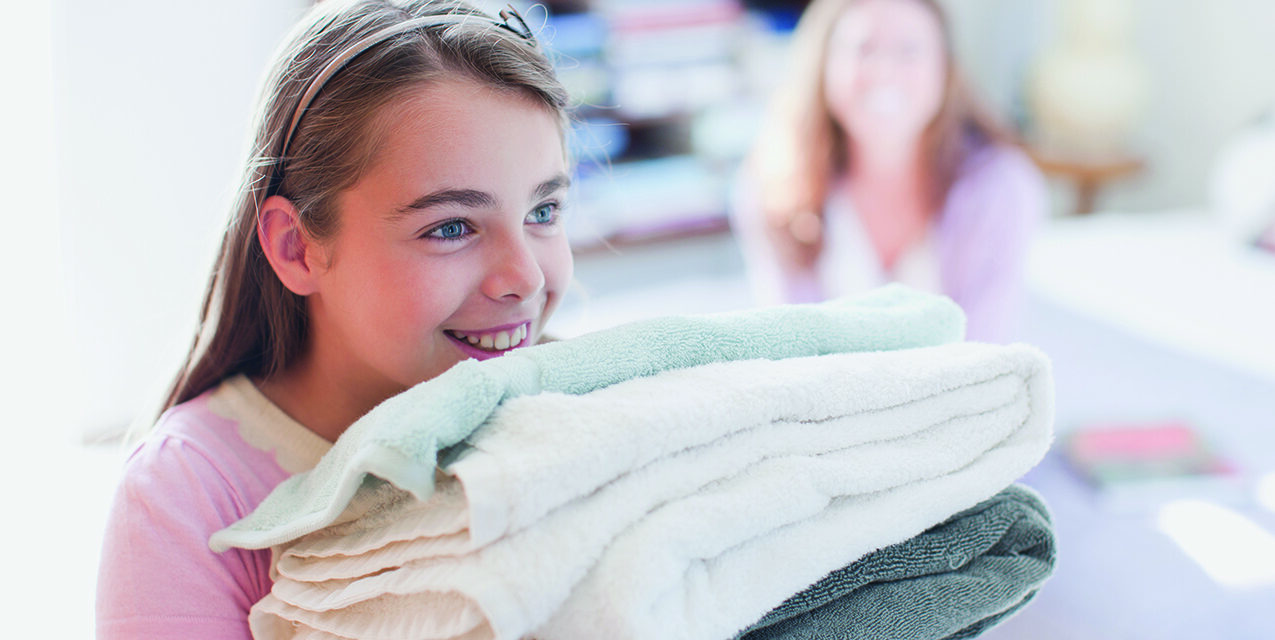Age-based Chores Guidelines

As children grow, giving them more responsibility can support their development. While some kids may accept chores more easily than others, young people have much to benefit from being assigned a bit more responsibility around the house. The American Academy of Child & Adolescent Psychiatry states that children who are given age-appropriate chores can learn time management skills and how to balance work and play from a young age, among other lessons. The AACAP also emphasizes that chores can help build a strong foundation for independent functioning.
When choosing chores for children, parents should select tasks that are suitable for their age. If kids are asked to do chores that are too difficult, they may not experience the sense of achievement and could be hesitant to try new chores later on. With that in mind, parents can follow these age-based chore recommendations, courtesy of the AACAP.
Two- to three-year-olds.
The AACAP notes that children in this age group can be asked to put away their toys and even help when Mom and Dad put groceries away. Kids who assist with putting away groceries should be given lightweight, non-breakable items (i.e., avoid jars of tomato sauce).
Four- to five-year-olds.
Around this age, children can start making their beds, although parents should understand they might not do it perfectly. Four- and five-year-olds can also help feed pets (parents can supervise initially to ensure pets aren’t overfed) and assist with clearing the table after dinner.
Six- to seven-year-olds.
At this age, children can help with tasks such as wiping tables and counters, putting away their laundry, and even assisting with floor cleaning using a broom. When assigning laundry chores to six- and seven-year-olds, ensure they don’t have to climb dressers to reach the top drawers, as this can cause accidents and injuries. If children have taller dressers, limit this task to organizing clothes in the lower, easily reachable drawers.
Seven- to nine-year-olds.
The AACAP notes that children in this age group can load and unload the dishwasher, help prepare meals, and pack their own lunch for school. When kids are given these tasks, parents should keep sharp knives out of kids’ reach, and some may want to check lunch boxes after kids go to bed to ensure that the lunch they prepared isn’t just candy.
10- to 11-year-olds.
Kids around this age can change sheets, clean the kitchen or bathrooms, and do some light yard work.
12 years old and older.
The AACAP notes that children aged 12 and above can wash the car and help care for younger siblings. Teens can assist with grocery shopping and running errands.
Parents understand that no two children are identical, so it’s essential to be adaptable when following these guidelines. They can observe children trying out new chores the first few times to make sure they can handle the responsibilities. For more details about chores, visit aacap.org.









